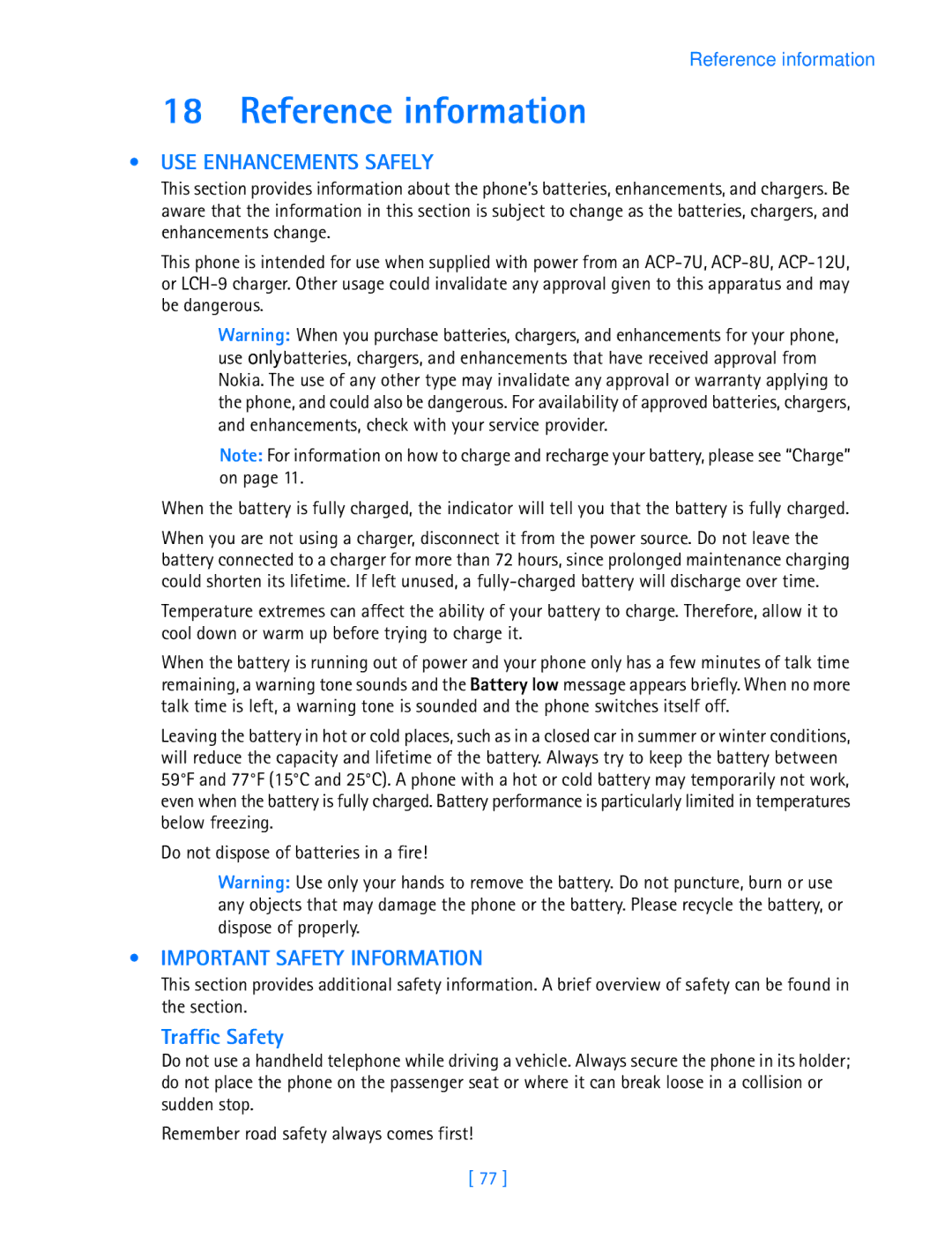Reference information
18 Reference information
•USE ENHANCEMENTS SAFELY
This section provides information about the phone’s batteries, enhancements, and chargers. Be aware that the information in this section is subject to change as the batteries, chargers, and enhancements change.
This phone is intended for use when supplied with power from an
Warning: When you purchase batteries, chargers, and enhancements for your phone, use only batteries, chargers, and enhancements that have received approval from Nokia. The use of any other type may invalidate any approval or warranty applying to the phone, and could also be dangerous. For availability of approved batteries, chargers, and enhancements, check with your service provider.
Note: For information on how to charge and recharge your battery, please see “Charge” on page 11.
When the battery is fully charged, the indicator will tell you that the battery is fully charged.
When you are not using a charger, disconnect it from the power source. Do not leave the battery connected to a charger for more than 72 hours, since prolonged maintenance charging could shorten its lifetime. If left unused, a
Temperature extremes can affect the ability of your battery to charge. Therefore, allow it to cool down or warm up before trying to charge it.
When the battery is running out of power and your phone only has a few minutes of talk time remaining, a warning tone sounds and the Battery low message appears briefly. When no more talk time is left, a warning tone is sounded and the phone switches itself off.
Leaving the battery in hot or cold places, such as in a closed car in summer or winter conditions, will reduce the capacity and lifetime of the battery. Always try to keep the battery between 59°F and 77°F (15°C and 25°C). A phone with a hot or cold battery may temporarily not work, even when the battery is fully charged. Battery performance is particularly limited in temperatures below freezing.
Do not dispose of batteries in a fire!
Warning: Use only your hands to remove the battery. Do not puncture, burn or use any objects that may damage the phone or the battery. Please recycle the battery, or dispose of properly.
•IMPORTANT SAFETY INFORMATION
This section provides additional safety information. A brief overview of safety can be found in the section.
Traffic Safety
Do not use a handheld telephone while driving a vehicle. Always secure the phone in its holder; do not place the phone on the passenger seat or where it can break loose in a collision or sudden stop.
Remember road safety always comes first!
[ 77 ]
